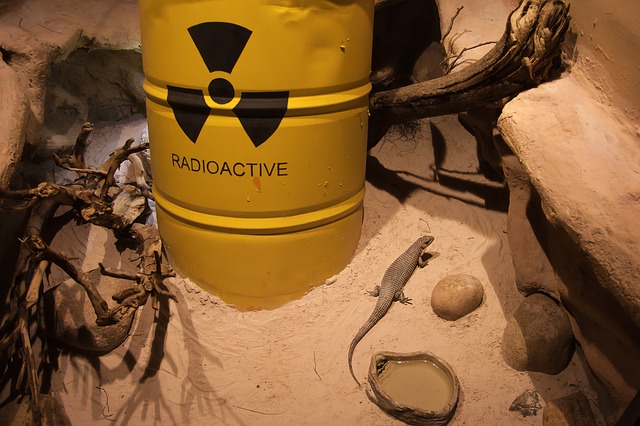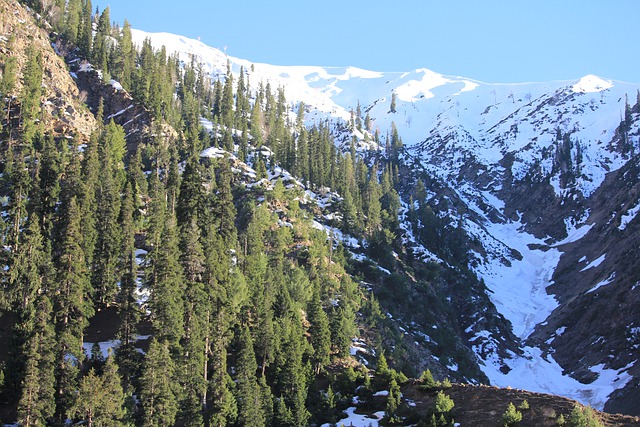Introduction
Radioactive: Radioactive is a term that includes particle emission as a form of energy.
Radioactivity: This term is defined as the emission of ionizing radiations from a radioactive substance.
Ionizing Radiations: The ionizing radiations are electromagnetic waves that have the capability to ionize atoms.
Radionuclide: It is an unstable atom that undergoes radioactive decay and emits alpha, beta, and gamma radiations.
Radioactive Waste: It is defined as a dangerous type of waste including radioactive substances or elements. It is often described as a byproduct, result, or outcome of an activity. The activity could be related to nuclear weapons reprocessing, rare earth mining, nuclear energy production, nuclear research, or radiology.
For more information about other types of wastes, check out: Solid waste – Types, Sources, and Effects
Types of Radioactive Waste
There are three main types of radioactive waste.
High Level: High-level radioactive waste is defined as an outcome of reactions happening inside the nuclear reactors. It is considered highly radioactive waste.
Intermediate Level: Intermediate level radioactive waste is defined as the waste that consists of radionuclides or waste that has been exposed to radioactivity for a long duration.
Low Level: Low-level radioactive waste is defined as the waste that consists of contaminated instruments that are used in radioactive operations.
Sources of Radioactive Waste
Radioactive waste is generated from multiple sources. Nuclear power countries are the main source of radioactive waste production. Radioactive waste is generated from nuclear fuel treatment plants, nuclear power plants, etc.
The waste from industries consists of intermediate-level radioactive waste.
There are also natural sources of radioactive waste. These sources include naturally occurring radioactive materials. The radioactive material becomes radioactive waste as a result of human activities like the utilization of oil, coal, minerals, and gas reserves.
Also check out: What is Nuclear Energy? – Uses, Advantages, Disadvantages
Disastrous Environmental Impacts of Radioactive Waste
Radioactive waste is dangerous for living beings and Earth’s natural ecosystem. A slight mistake in radioactive waste management could turn into an environmental hazard.
Improper radioactive waste disposal could contaminate water reserves. Heavy rains cause leachate production from disposed of radioactive waste and this process could lead to contamination of groundwater reserves.
Because radioactive waste contains radioactive material emitting ionizing radiation, exposure to radioactive waste can cause cancer, abnormalities in the body, or even death. Scavengers are at high risk of health hazards associated with radioactive waste because they are unaware of the radioactive material.
Accidents associated with radioactive waste transportation could cause serious environmental issues. It can cause genetic complications in plants and animals. Carbon dioxide is released during the transportation of radioactive waste.
There is no easy way to clean spilled out radioactive waste or radioactive substance.
Conclusion
Radioactive waste contains radioactive elements that are dangerous to not only humans but environmental also. Harmful radiation from radioactive waste can cause changes in DNA. If radioactive waste is not managed properly it could lead to environmental disaster because of hazards associated with it. All types of radioactive waste being produced in the world need to be disposed of properly.
You might also wish to read: Renewable Alternative Energy Resources – Advantages and Disadvantages
Recommendation
It is recommended that radioactive waste should be properly stored, transported, and disposed of in a way that does not pose threats to living beings. Radioactive hazard signs should be labeled at operating sites. The public should be made aware of hazards associated with radioactive waste.
Also check out: Nuclear Waste Production and Management in Pakistan
I hope you all liked this post! Please comment below if you have any suggestions, comments, or feedback! We at #envpk love hearing from our readers! Thanks!




